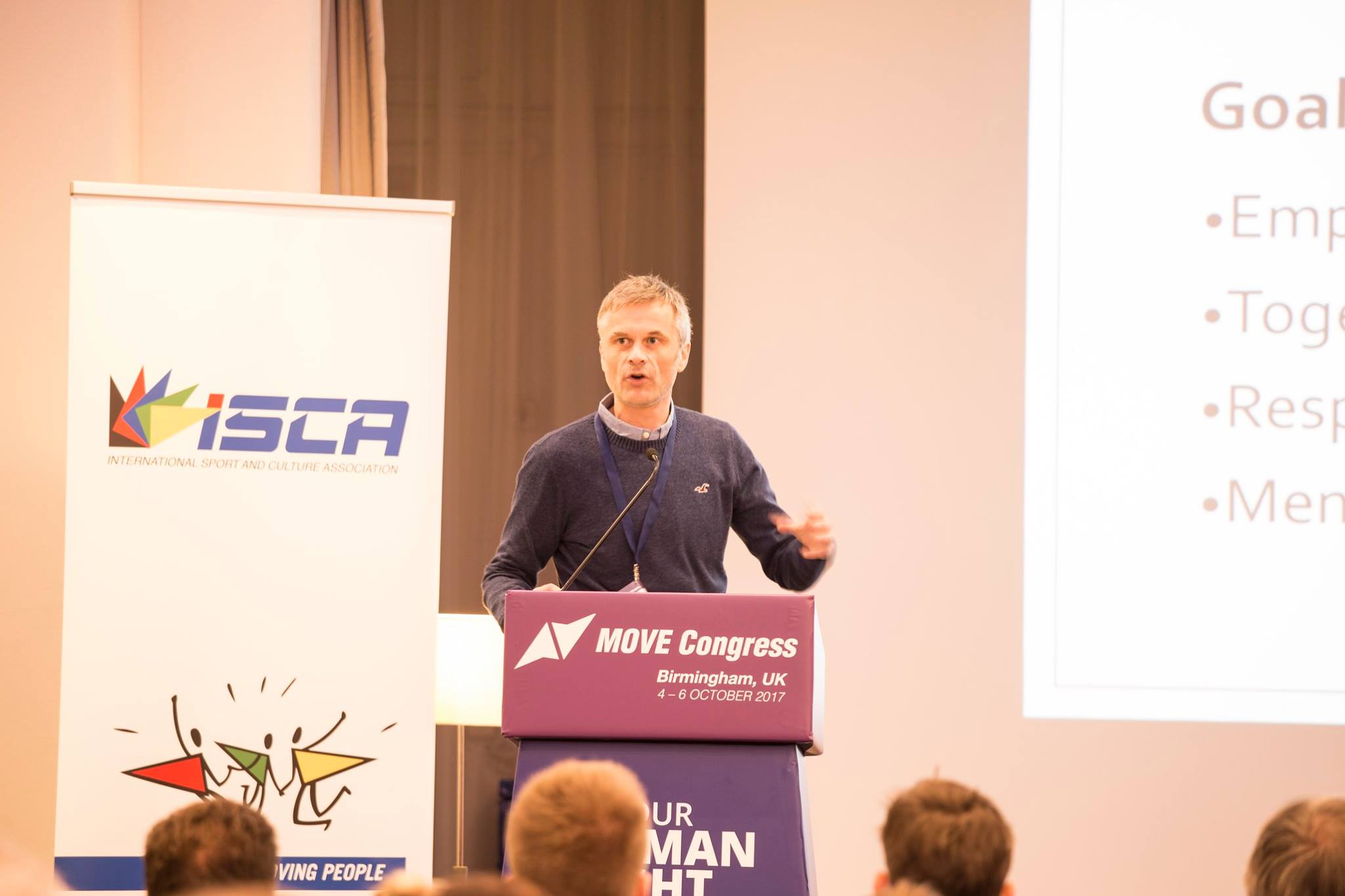Dealing with the global refugee crisis is not only a state-level problem. Many local communities deal with everyday questions on how to integrate asylum seekers into their local communities. At the MOVE Congress 2017, Andreas Selliaas from Selliaas Consulting shared his own experience from Norway.
Andreas Selliaas’ personal experience with human rights in sport has two equally important sides. By coaching a football team for refugees and asylum seekers in Norway, he has not only taken an inclusive approach but offered them an opportunity to do physical activity and play sports. With a simple goal of teaching football, Selliaas has given both a new perspective to the asylum seekers and eased their integration into a foreign country.
However, Selliaas explained that he often feels conflicted when they accept young refugees or asylum seekers to their activities. He can’t fight against the state’s policy that will probably send out many refugees who turn 18. In the meanwhile, he is, however, able to provide them the support from a local community.
See how Selliaas helped Wahid and Nasim – two young Afghan refugees – and taught them how to play football and so much more:
Think global, act local – Norway’s experience in reframing urban spaces for physical activity
Dealing with the global refugee crisis is not only a state-level problem. Many local communities deal with everyday questions on how to integrate asylum seekers into their local communities. At the MOVE Congress 2017, Andreas Selliaas from Selliaas Consulting shared his own experience from Norway. Andreas Selliaas’ personal experience with human rights in sport has two equally important sides. By coaching a football team for refugees and asylum seekers in Norway, he has not only taken an inclusive approach but offered
MOVING also means advocating for our cause
At the MOVE Congress 2017 closing session on Friday 6 October, ISCA Secretary General Jacob Schouenborg led an open panel discussion together with ISCA North America Chair Jayne Greenberg, Pauline Harper from EPODE International and Rose-Marie Repond from EUPEA on the WHO’s recent draft of a Global Action Plan for Physical Activity. So along with making physical moves to encourage others to get active, it is also important for the delegates to take political action and make strategic moves to get
Physical activity promoters from six continents made their MOVE at the MOVE Congress 2017
The MOVE Congress 2017 in Birmingham, UK, from 4-6 October gathered stakeholders in grassroots sport and physical activity from six continents and countries as far and wide as New Zealand, Costa Rica, the US and Brazil. From transforming the Birmingham Council House’s Banqueting Hall into a 5Rhythms “ISCA Disco” at the opening session, to presentations that got the participants thinking and sharing their views, to more dancing with a Bhangra and barn dance workshop at the networking dinner – the 8th
“What a responsibility we have!”
The MOVE Congress 2017 puts the spotlight on us as enablers of the human right to MOVE. The barriers that get in the way of the average citizen exercising their human right to move are plentiful, according to the presenters at this year’s MOVE Congress. Anything from money to gender-stereotyped activities, to lack of safety, to perception, to litter and lazy dog owners stops people from using their environment as a space to be active. “It’s easier to find the millions to
MOVE Congress 2017 starts with a Call to MOVE
It’s our human right to move – so what’s stopping us? MOVE Congress 2017 facilitator Sean Blair from ProMeet greeted this year’s delegates when they arrived with a Call to MOVE. And before the opening speeches even began, Birmingham Council House’s banqueting hall had transformed into a dance floor led by Neil Pinnock from 5 Rhythms and six of his co-dancers. “I don’t think the city has seen an opening of a Congress like this”, Birmingham Councillor Ian Ward said

